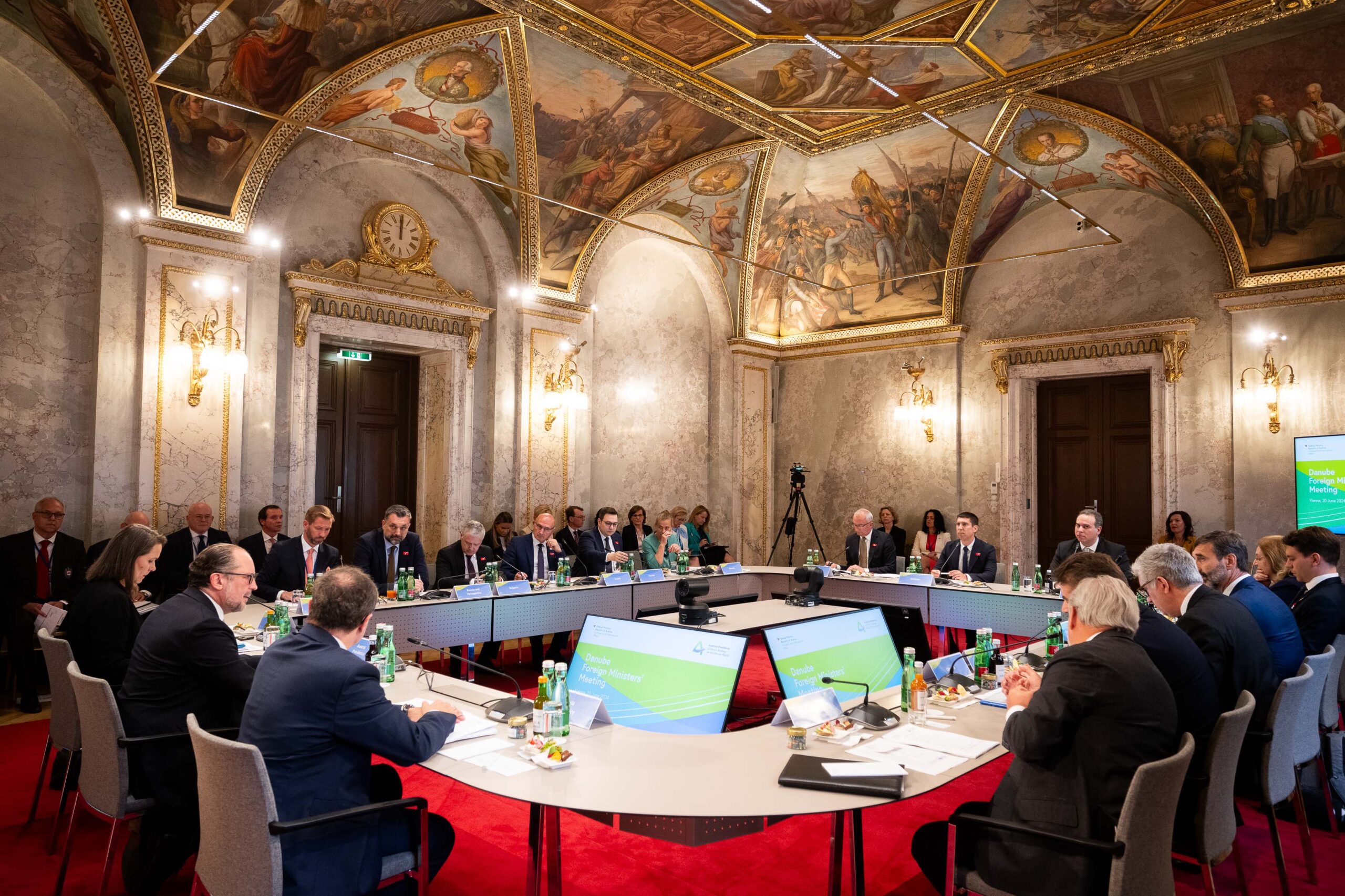© BMEIA / Gruber
In recent decades, the Danube Region has made significant progress in enhancing collaboration and fostering closer ties. With a population of over 115 million people across 14 countries within the EU Strategy for the Danube Region (EUSDR), this region now exclusively comprises EU member and candidate countries since 2023. The process of European integration along the Danube is advancing, aiming to have the river serve as a unifying factor for all EU nations.
However, the Danube Region is facing increasing challenges, such as systemic and security threats, including the disruptive influence of external actors, hybrid threats, and disinformation. A circle of instability surrounds the Region, extending from Ukraine, where Russia is engaged in aggressive actions, to crises in the Middle East, the Sahel region, and the Horn of Africa.
Despite these challenges, the EUSDR countries remain committed to standing together and enhancing cooperation in the Danube Region, which is considered as a pillar of security, stability, and prosperity.
Considering the geopolitical context in the Danube Region, the ministers of foreign affairs in the EUSDR countries signed a joint declaration,
- condemning in the strongest terms Russia’s unprovoked and unjustified war of aggression against Ukraine and Russia’s repeated military strikes on Danube port infrastructure and storage facilities and infringements on the freedom of navigation on the Danube,
- encouraging the further exploration of the EUSDR as a useful forum for cooperation with EU candidate countries,
- appreciating the efforts of the Danube Youth Council (DYC) and commending the institutionalisation of the Danube Youth Organisations Network (DYON) as an innovative element for shaping the future of our Region,
- welcoming the new initiatives of the Austrian EUSDR Presidency to promote further dialogue and cooperation in the Danube Region, at the decisional level and business sector,
- supporting initiatives that counteract illegal migration, explore opportunities of migration and enhance cooperation to dismantle smuggling networks,
- reaffirming commitment to tackling existing and new challenges in the Danube Region, including by promoting cooperation in foreign policy and security matters,
- highlighting the importance of funding programmes such as Interreg in delivering EUSDR results.
In the end of the declaration, all countries congratulate Bosnia and Herzegovina for taking over the EUSDR Presidency in 2025, lending their full support for the implementation of the Bosnian and Herzegovinian EUSDR Presidency.
Full declaration: Joint Statement of the Danube Foreign Ministers.





